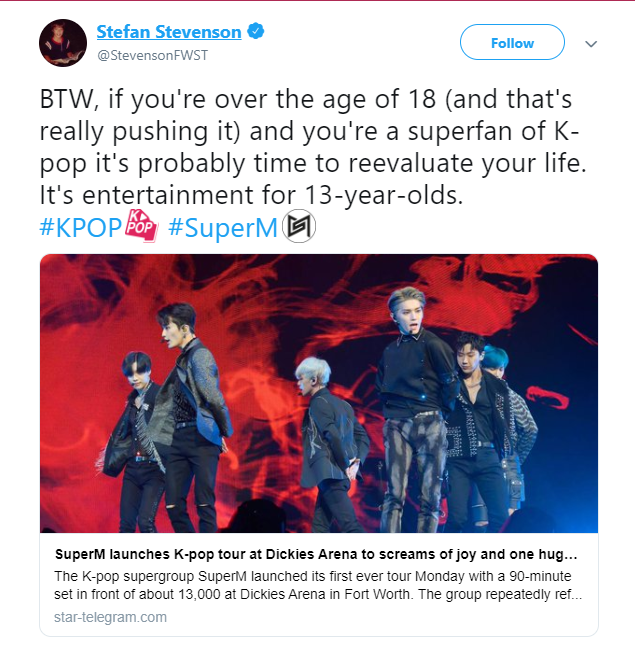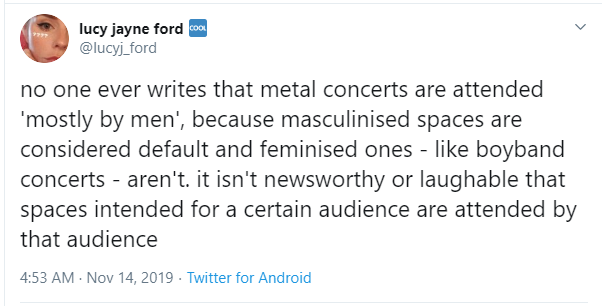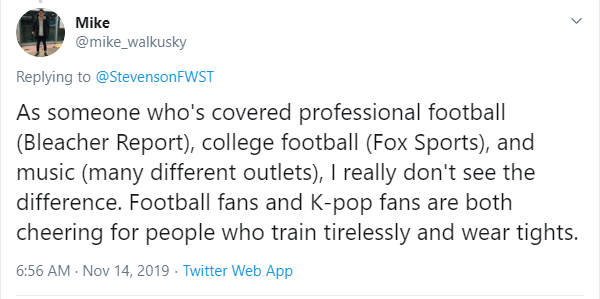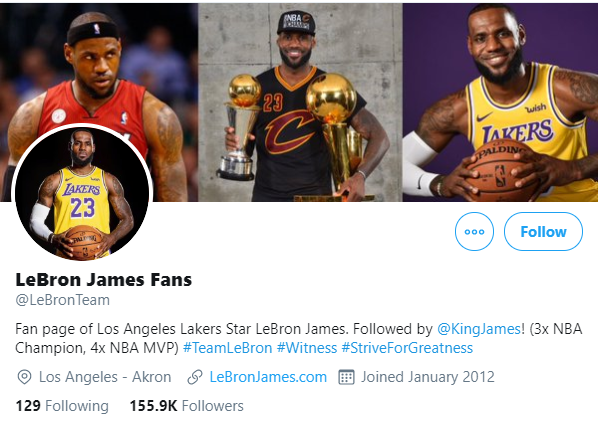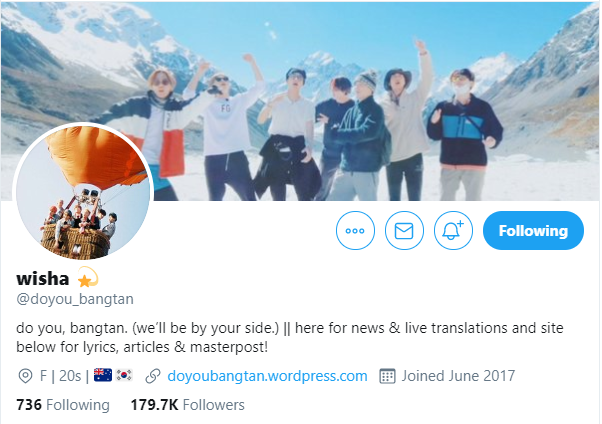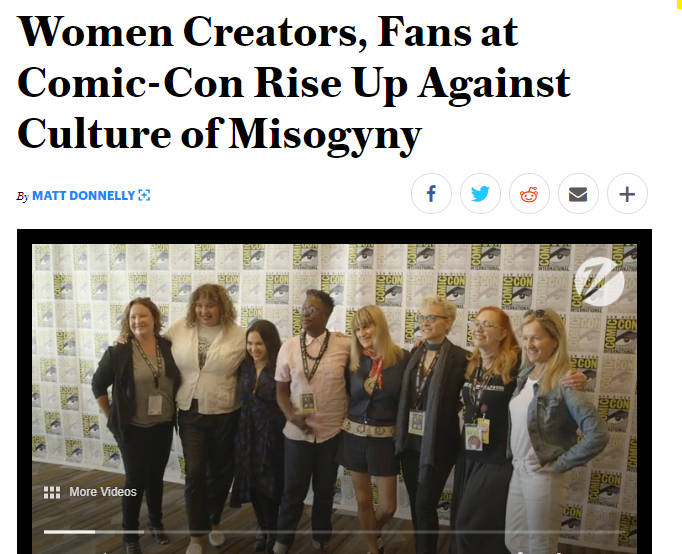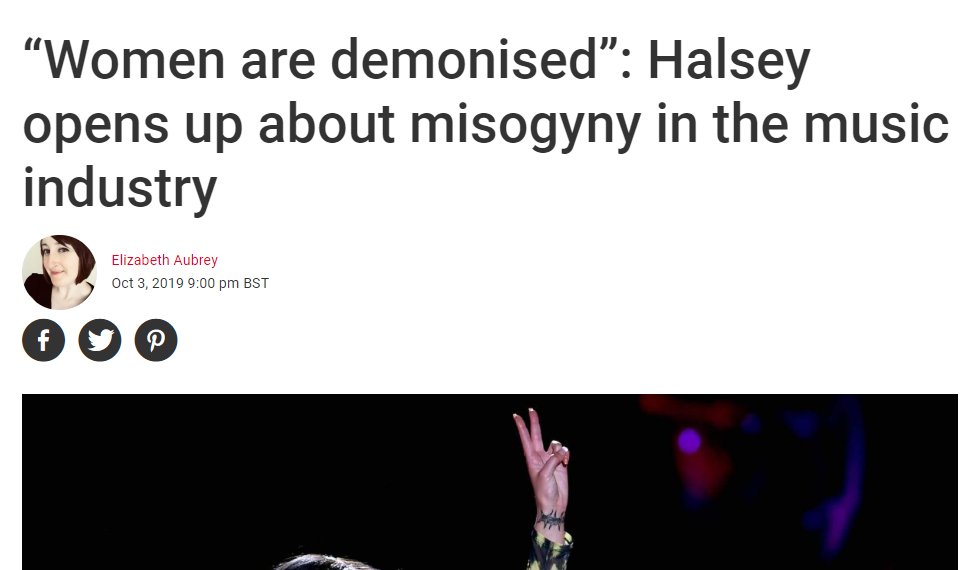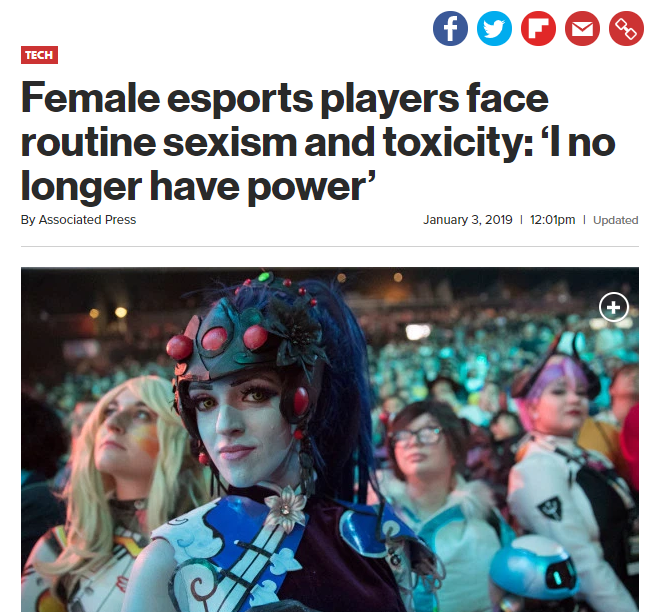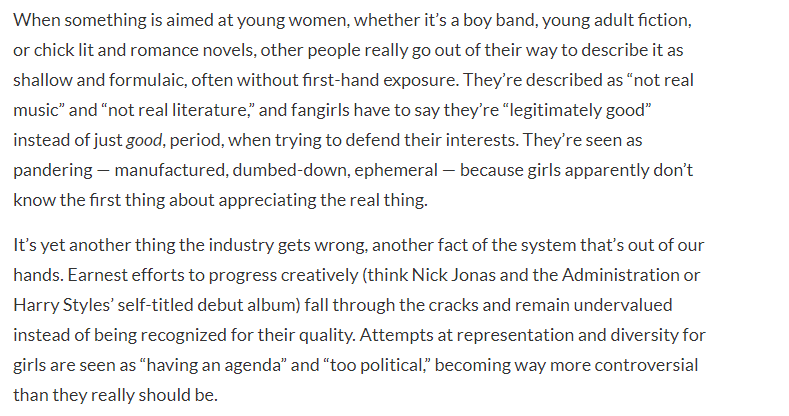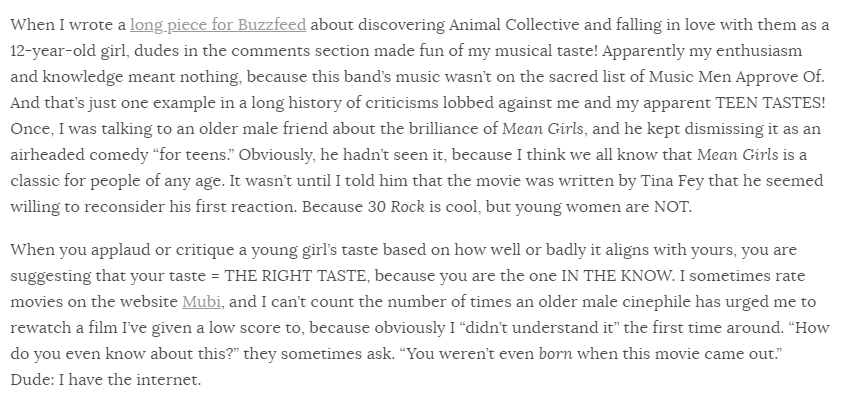what is misogyny, truly? an article by sean illing on vox explores definitions of the term, which philo professor kate manne argues “is not about male hostility [...] — instead, it’s about controlling and punishing women who challenge male dominance."
https://www.vox.com/identities/2017/12/5/16705284/metoo-weinstein-misogyny-trump-sexism">https://www.vox.com/identitie...
https://www.vox.com/identities/2017/12/5/16705284/metoo-weinstein-misogyny-trump-sexism">https://www.vox.com/identitie...
on nov. 14, a(nother) white male journalist managed to both invalidate the interests of young women and young people in general with his review, and subsequent tweet sharing it, of a superm show at fort worth.
in his bizarre concert review and the accompanying video caption, the fort worth star telegram sports (!) writer stefan stevenson doesn’t hesitate to point out that the audience of the show is mostly female.
in response, journalist lucy ford tweeted about the internalized misogyny that comes with deeming a boyband concert audience mostly female as newsworthy.
what k-pop stans found most frustrating, however, was how uninformed stevenson seemed to be. the fact that he so openly aired his disdain about, for instance, a lack of instruments only proved that he didn’t think it important to do enough research beyond a quick google.
if this sounds familiar, recall the THR cover story on BTS, in which the writer rushed to research k-pop and BTS& #39; success. it seems that there is a trend of “serious," usually male, white journalists not approaching these subjects with the same respect they give other artists.
these instances (including stevenson’s subsequent petty replies to stans) are just some examples of a deep-rooted, dismissive misogyny that has plagued fandom communities for ages. https://twitter.com/StevensonFWST/status/1194713374803857409?s=20">https://twitter.com/Stevenson...
emphasizing the “mostly female” audience, and calling K-Pop “entertainment for 13-year-olds,” reinforced ideas that pop, or anything liked by mostly young people (or women) must be inferior, and therefore not as substantial as something that a man would be interested in.
as a sports writer, stevenson himself has described himself as a fan of something. the only difference is that the largely masculine realm of sports fanaticism is celebrated and taken seriously, while the majority female realm of pop music standom is likely to be looked down on.
consider that fandoms of sports and music operate with similar fervor regardless of who their love is directed at. this reply from mike to stevenson’s tweet argues that football fans and k-pop stans are basically the same:
then again, it& #39;s not like cool, manly sports fans make fan accounts devoted to grown men they admire or anything. that& #39;s just a fangirl thing!
we see dismissive stigmas reinforced time and time again -- in the way male reporters cover pop stars like BTS or One Direction, or in the way women aren’t taken seriously whenever they express interest in a field with a male-dominated fanbase, like comic books or e-sports.
in a piece for young star, fiel estrella writes about the common practice of immediately branding things targeted towards the young female demographic as “shallow or formulaic." fangirls always seem burdened to prove why their faves are “legitimately good."
jezebel pop culture reporter hazel cills wrote about how her tastes as a teen were mocked by older men in a 2014 piece for rookie (rip); pointing to how men on the internet would try to police her taste in music and film.
https://www.rookiemag.com/2014/01/kids-wont-listen/">https://www.rookiemag.com/2014/01/k...
https://www.rookiemag.com/2014/01/kids-wont-listen/">https://www.rookiemag.com/2014/01/k...
all this then begs the question: why do these spheres of influence, or these interests, have to be gendered at all? isn’t it wrong to be policing what a person can or can’t like based on their gender in the first place?
just food for thought.
just food for thought.
what did you think of that superm concert review? what are some other ways in which misogyny manifests towards fandoms? what can we do to curb it? let us know in the replies!

 Read on Twitter
Read on Twitter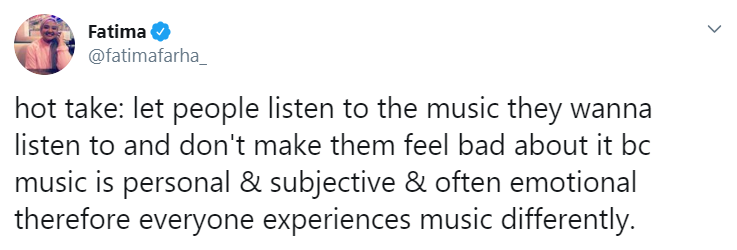
![what is misogyny, truly? an article by sean illing on vox explores definitions of the term, which philo professor kate manne argues “is not about male hostility [...] — instead, it’s about controlling and punishing women who challenge male dominance." https://www.vox.com/identitie... what is misogyny, truly? an article by sean illing on vox explores definitions of the term, which philo professor kate manne argues “is not about male hostility [...] — instead, it’s about controlling and punishing women who challenge male dominance." https://www.vox.com/identitie...](https://pbs.twimg.com/media/EJWFfibWkAEuXgj.png)
![what is misogyny, truly? an article by sean illing on vox explores definitions of the term, which philo professor kate manne argues “is not about male hostility [...] — instead, it’s about controlling and punishing women who challenge male dominance." https://www.vox.com/identitie... what is misogyny, truly? an article by sean illing on vox explores definitions of the term, which philo professor kate manne argues “is not about male hostility [...] — instead, it’s about controlling and punishing women who challenge male dominance." https://www.vox.com/identitie...](https://pbs.twimg.com/media/EJWFfiiWkAAv1cx.png)
